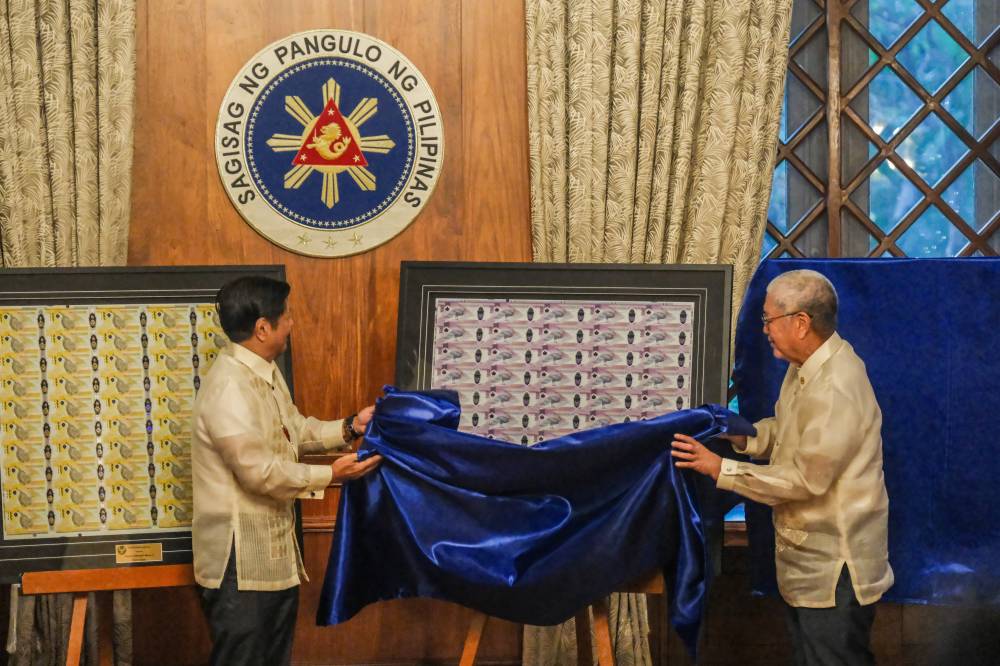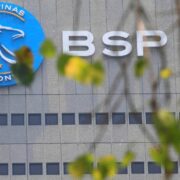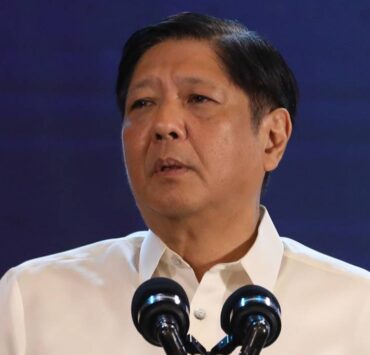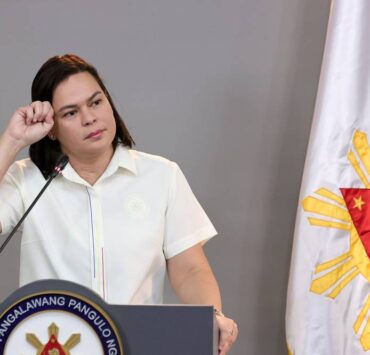New peso bills focus on PH fauna; heroes, leaders gone

President Marcos on Thursday led the unveiling of the next generation of polymer peso bills whose new designs mainly featured some of the country’s indigenous animal species.
Noticeably banished from the new banknotes are the Filipino patriots and national leaders whose portraits have graced the country’s legal tenders for decades.
The P500 bill, for example, no longer bears the faces of the late President Corazon Aquino and her husband, former Sen. Benigno “Ninoy” Aquino Jr. In their place is the Visayan spotted deer.
In a speech in Malacañang, without dwelling on why the historical figures were all removed, President Marcos said he still learned something new about Philippine fauna upon seeing the new designs.
He lauded the decision of the Bangko Sentral ng Pilipinas (BSP) in 2022 to shift to polymer banknotes as a “groundbreaking step” symbolic of the nation’s strength, ingenuity and forward momentum.
“By upgrading our currency, we are making sure that every hard-earned peso stays safe, whether it is saved, whether it is spent, or whether it is invested,” he said.
In a statement, the BSP said the change in motif “follows a cyclical pattern of selecting currency design themes.”
Mindanao weave design
The BSP explained that it had always featured the country’s heroes and nature in the peso bills, but that for the new banknotes it “decided to put focus on the latter.”
The new P1,000 banknote still carries the image of the Philippine eagle. Before it was introduced in 2022, its obverse side had the portraits of World War II heroes Josefa Llanes Escoda, Vicente Lim and Jose Abad Santos.
In the incoming banknote, the native raptor is paired with the sampaguita, the national flower.
Aside from the Visayan deer, the new P500 bill features the blue-naped parrot, the Puerto Princesa Subterranean National Park and—departing from the environmental theme—a weave design from Mindanao.
The new P100 note replaced the image of former President Manuel Roxas with that of the Palawan peacock pheasant.
For the new P50 note, the central images are of Visayan leopard cat, the native “maliputo” fish and Taal lake—no longer of former President Sergio Osmeña.
“And as an aside, (BSP) Governor Eli (Remolona) and I remarked: We didn’t know that we had these species indigenous in our country. So not only is it useful as a currency; we learn something from these new polymer notes,” the President said.
In an interview, Mary Anne Lim, BSP assistant governor for the currency and securities production subsector, said the new banknotes would initially be available in small quantities in Metro Manila in time for the Christmas season.
With the new banknotes, the President said, the Philippines joins over 40 countries, including Australia, Canada, the United Kingdom and Singapore, in adopting polymer banknotes.
The material—which has replaced abaca since April 2022—ensures that the country’s currency will be “secure, durable and sustainable,” he added.
“That means we no longer need to replace them as often, saving money, cutting down on waste, and making a meaningful contribution to protecting the environment,” he said.
The banknotes of the old design would remain valid and in general circulation, the President stressed.

















